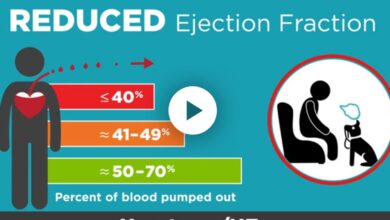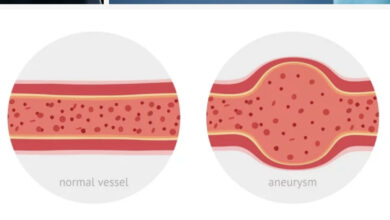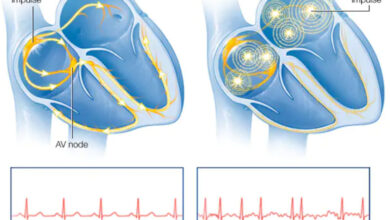BLOOD TRANSFUSIONS ARE MORE THAN JUST BLOOD!

Donating blood is a good-hearted thing to do. In medical school, I did it 2 or 3 times a year, not because I thought it was my humanitarian duty, but because I got paid $25 every time I did it. That was a lot of money back in 1965, and since I was a healthy young man, I didn’t mind doing it. The money helped a struggling medical student. However, it truly is a benevolent gesture, and people who are healthy should donate blood as often as possible.
Donation is only half of the process, though. Almost as fast as it’s donated, blood is transfused into a needy patient. The process of “transfusion” is the removal of blood from one source and transferring it to another. In today’s medical world whole blood is rarely the infusion of choice. Whole blood is given only in cases of extreme emergency, massive blood loss, or on a military battlefield. Instead, components of blood specific to the need are given. The problem at hand determines what substance is transfused.
WHOLE BLOOD has four major components which are listed below:
RED BLOOD CELLS
PLASMA
PLATELETS
CRYOPRECIPITATE
Each of the major blood components is used for specific reasons.
Red Blood Cells are the oxygen-carrying component of whole blood. They are separated from the plasma and given intravenously by themselves as packed red blood cells (RBCs). Packed red cells treat acute anemia, most often from bleeding, trauma, or surgery, but also treat chronic anemia from kidney failure or blood disorders like sickle cell anemia.
Plasma is the liquid portion of whole blood. It is separated from red cells, white cells, and platelets all of which circulate around in plasma. When patients have clotting problems (coagulopathies), plasma is given IV to replace the absent clotting factors and stop uncontrollable bleeding. Plasma is also used in cases of massive blood loss to replace lost fluid volume. Plasma contains albumin, electrolytes (sodium, potassium), sugars, fats, hormones, and vitamins as well as proteins for blood clotting and immunity.
Platelets are tiny cells in whole blood that are essential to the process of blood clot formation. Without them, uncontrollable bleeding is a certainty. Thus, platelet-containing plasma is separated from the blood and given to patients with low platelet counts. The separation process is quite complex and platelets from several donors are usually needed to have an adequate amount to gain control of bleeding.
Cryoprecipitate is the one component of whole blood used infrequently and for very specific reasons. It is the portion of the plasma that is rich in clotting factor VIII and fibrinogen. Its most common use is in patients with Hemophilia and Von Willebrand disease (the most common hereditary coagulation disorder). Those disorders lack the clotting factors and fibrinogen
necessary to prevent massive bleeding. Cryoprecipitate replaces those deficiencies.
So it is true that today’s medical practitioners don’t often if ever, give patients whole blood. Specific situations call for the replacement of specific components to correct the problem at hand. Amazingly, researchers have discovered methods to effectively separate the individual components needed to treat the condition presented to practitioners.
All donated blood is carefully screened for diseases transmitted by transfusion. Prior to the early 1980’s, blood donors were screened only for syphilis. Since 1938, VDRL and RPR tests for syphilis were done on all donated blood. In June, 1981, the first case of Human Immunodeficiency Virus (HIV) was diagnosed. Originally called Human T-cell Lymphocytic Virus Type 3 (HTLV-lll) the disease became Acquired Immune Deficiency Syndrome (AIDS) and later HIV. Cases of HIV, as well as Hepatitis B and C, were occurring more and more frequently, and the source was being traced back to blood patients had received from transfusions. Four years later, a screening test for HIV was discovered that changed privacy and health information disclosure rules forever but primarily protected blood recipients from receiving transfusions tainted with HIV. Screening for Hepatitis B and Hepatitis C began in 1982 and 1990, respectively.
Today, screening of donated blood is much more complex. There is a long list of drugs and disorders that exclude people from being donors. Every unit of blood donated is screened. Each state and each country have its own blood screening laws. In the U.S., however, every donation is screened for syphilis, HIV, hepatitis B, hepatitis C, West Nile virus, and Zika virus. Other diseases seen only in certain areas of the world are screened for in those particular areas.
Reactions to blood transfusions are a fairly common occurrence but will not be addressed here. Suffice it to say, modifications to blood products can be made that decrease the risks of transfusion-related adverse reactions. To help this situation, criteria for administering transfusions have tightened and the threshold for giving blood etc. has been raised enough that transfusions are given much less often. The doctor must be certain to follow strict guidelines to conserve the blood bank’s supply and not transfuse patients unnecessarily. This is a good thing.
Dr. G’s Opinion: Because of the horrible diseases that are acquired through blood tainted with HIV, HCV, HBV, etc. doctors are now discouraged from transfusing a patient as cavalierly as they once were. Patients’ lab values have to be at a certain abnormal level, and their physical state must be unstable enough that there is no debate about the need for transfusion. Similar rigid criteria also pertain to transfusions of platelets, plasma, and cryoprecipitate. One must still individualize care by carefully treating the person and not their lab values.
References: Raval JS, Griggs JR, Fleg A. Blood Product Transfusion in Adults: Indications, Adverse Reactions, and Modifications Am Fam Phys 2020 July1;102(1):30-38.
Goodnough LT, Panigrahi AK. Blood a Transfusion Therapy Med Clin N Am 2017 101:xx
Https://www.cdc.gov/blood safety/basics
https://www.reference.medscape.com/drug/whole-blood
Https://www.redcrossblood.org/donate-blood/how-to-donate/types-of-blood-donations/blood-components





Its like you read my mind! You seem to know so much about this, like you
wrote the book in it or something. I think that you can do
with a few pics to drive the message home a bit, but other than that, this is magnificent blog.
An excellent read. I will certainly be back.
Also visit my homepage <a href="[Link deleted]twitter ไม่ต้องแชร์
Thank you.
I am regular visitor, how are you everybody?
This post posted at this web site is truly nice.
Also visit my homepage … <a href="[Link deleted]casino complaints
Thank you
Remarkable issues here. I am very happy to see your post.
Thanks so much and I am taking a look ahead to contact you.
Will you please drop me a e-mail?
Review my web blog; <a href="[Link deleted]เครดิต ฟรี
What is your question?
I am truly pleased to read this website posts which includes tons of helpful data, thanks for providing such information.
my page – <a href="[Link deleted]ปู ปลา เครดิตฟรี
Thanks
Informative article, totally what I was looking for.
Also visit my web-site – <a href="[Link deleted]ถอน เข้า วอ เลท
Thanks
Thanks in favor of sharing such a pleasant opinion, post is pleasant, thats why i have read it completely
Also visit my site; <a href="[Link deleted]fun88
Thanks
Howdy great blog! Does running a blog like
this require a massive amount work? I have virtually
no understanding of coding however I had been hoping to start my own blog in the near future.
Anyway, if you have any suggestions or tips for new blog owners please share.
I know this is off topic but I just wanted to ask.
Thanks!
Also visit my blog post: <a href="[Link deleted]ทางเข้า
I had the site built by a web designer. I post new articles about every three days so it doesn’t take a lot of time. If I posted one every day, I would be spending 4-6 hours on it daily. And I limit the number of references I use. For some subjects there are hundreds of references. I pick what’s more concise and informative.
Pretty nice post. I just stumbled upon your weblog and
wished to say that I have really enjoyed surfing around
your blog posts. In any case I will be subscribing to your rss feed and I hope you write again soon!
My homepage: <a href="[Link deleted]YES8
Thank you.
Hey there! This post couldn’t be written any better!
Reading this post reminds me of my good old room
mate! He always kept chatting about this. I will forward this write-up to him.
Pretty sure he will have a good read. Many thanks for
sharing!
Feel free to visit my web page :: <a href="[Link deleted]สุขุมวิท
Thank you.